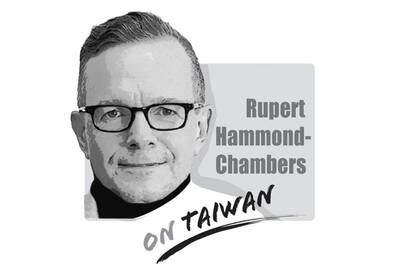World War II reached its conclusion on Aug. 15, 1945. Japan announced its unconditional surrender, thereby relinquishing its colonial rule over Taiwan. Filled with dreams of a “motherland,” Taiwanese welcomed the Republic of China (ROC) — which had come to take over on behalf of the Allied forces — believing it to be the first democratic republic in Asia. From 1945 to 1949, Taiwan and China were well integrated — “blue” Chinese, “red” Chinese and all other kinds of Chinese came to Taiwan for exchanges. However, this period is now referred to as a tragic beginning.
During the Chinese Civil War — fought between the Chinese Nationalist Party (KMT) and the Chinese Communist Party (CCP) — conflict raged throughout China. After the initial welcome of the ROC, growing resentment among Taiwanese led to the 228 Incident of Feb. 28, 1947, a brutal crackdown by the then-KMT regime that led to the deaths and imprisonment of tens of thousands of Taiwanese. Many intellectuals and cultural figures were subsequently imprisoned on Green Island (綠島) for suspected communist involvement.
After the KMT lost the civil war and was exiled to Taiwan in 1949, it coerced Taiwanese to join the anti-communist cause and “recover the nation,” with the aim of retaking China. This led to 38 years of martial law.
Lacking subjectivity, Taiwan — which had chosen to be ruled by the “motherland” — was forced into anti-communism under martial law. Now, decades after democratization, it is being pressured to align with communism.
Many members of the KMT behave like colonizers, while many Taiwanese conform, as if they are suffering from colonial syndrome. Even after its successful democratization movement, Taiwan — as a nation — still uses the name “ROC” domestically. Internationally, it is only officially permitted to refer to itself as “Chinese Taipei,” while members of the public use the name “Taiwan” colloquially to differentiate from the People’s Republic of China. The nation — despite facing constant aggression, coercion and humiliation by China — still has yet to form a true shared community of destiny.
“The Japanese soldiers loosened the chains that bound the island, lowering the Rising Sun flag. Yet we forgot to raise our own — a banner atop the tower to declare our identity. On the day the war ended, we wavered in the midst of our joy, forgetting to erase the colonial stamp that prolonged our shadowed history.”
This excerpt from my poem Forgotten History (被遺忘的歷史), originally written in Mandarin, is an imprint of Aug. 15, 1945. Throughout the history of liberation following World War II, many formerly colonized nations gained independence and autonomy, but for Taiwanese, the dream of a “motherland” became a nightmare. Countless cultural figures have their names etched at sites like the National 228 Memorial Museum, the Jing-Mei White Terror Memorial Park and Green Island White Terror Memorial Park — becoming engraved in our memory. They include not only Taiwanese, but also many Chinese who were swept up in the conflict between the KMT and the CCP.
As a free and democratic nation, Taiwan should reflect on the scars left by history. New Taiwanese — those who were driven to Taiwan by the CCP in 1949 — also share a fate of displacement. Together, we must cherish the building of a shared community of destiny throughout our nation. Taiwan belongs to all of us and it is a nation we must protect together.
Lee Min-yung is a poet.
Translated by Kyra Gustavsen
Having lived through former British prime minister Boris Johnson’s tumultuous and scandal-ridden administration, the last place I had expected to come face-to-face with “Mr Brexit” was in a hotel ballroom in Taipei. Should I have been so surprised? Over the past few years, Taiwan has unfortunately become the destination of choice for washed-up Western politicians to turn up long after their political careers have ended, making grandiose speeches in exchange for extraordinarily large paychecks far exceeding the annual salary of all but the wealthiest of Taiwan’s business tycoons. Taiwan’s pursuit of bygone politicians with little to no influence in their home
In a recent essay, “How Taiwan Lost Trump,” a former adviser to US President Donald Trump, Christian Whiton, accuses Taiwan of diplomatic incompetence — claiming Taipei failed to reach out to Trump, botched trade negotiations and mishandled its defense posture. Whiton’s narrative overlooks a fundamental truth: Taiwan was never in a position to “win” Trump’s favor in the first place. The playing field was asymmetrical from the outset, dominated by a transactional US president on one side and the looming threat of Chinese coercion on the other. From the outset of his second term, which began in January, Trump reaffirmed his
It is difficult not to agree with a few points stated by Christian Whiton in his article, “How Taiwan Lost Trump,” and yet the main idea is flawed. I am a Polish journalist who considers Taiwan her second home. I am conservative, and I might disagree with some social changes being promoted in Taiwan right now, especially the push for progressiveness backed by leftists from the West — we need to clean up our mess before blaming the Taiwanese. However, I would never think that those issues should dominate the West’s judgement of Taiwan’s geopolitical importance. The question is not whether

In 2025, it is easy to believe that Taiwan has always played a central role in various assessments of global national interests. But that is a mistaken belief. Taiwan’s position in the world and the international support it presently enjoys are relatively new and remain highly vulnerable to challenges from China. In the early 2000s, the George W. Bush Administration had plans to elevate bilateral relations and to boost Taiwan’s defense. It designated Taiwan as a non-NATO ally, and in 2001 made available to Taiwan a significant package of arms to enhance the island’s defenses including the submarines it long sought.